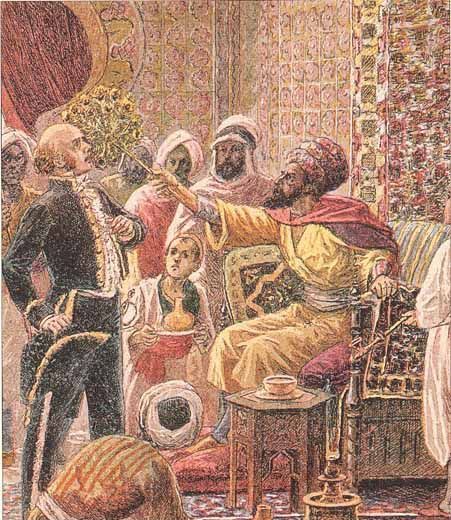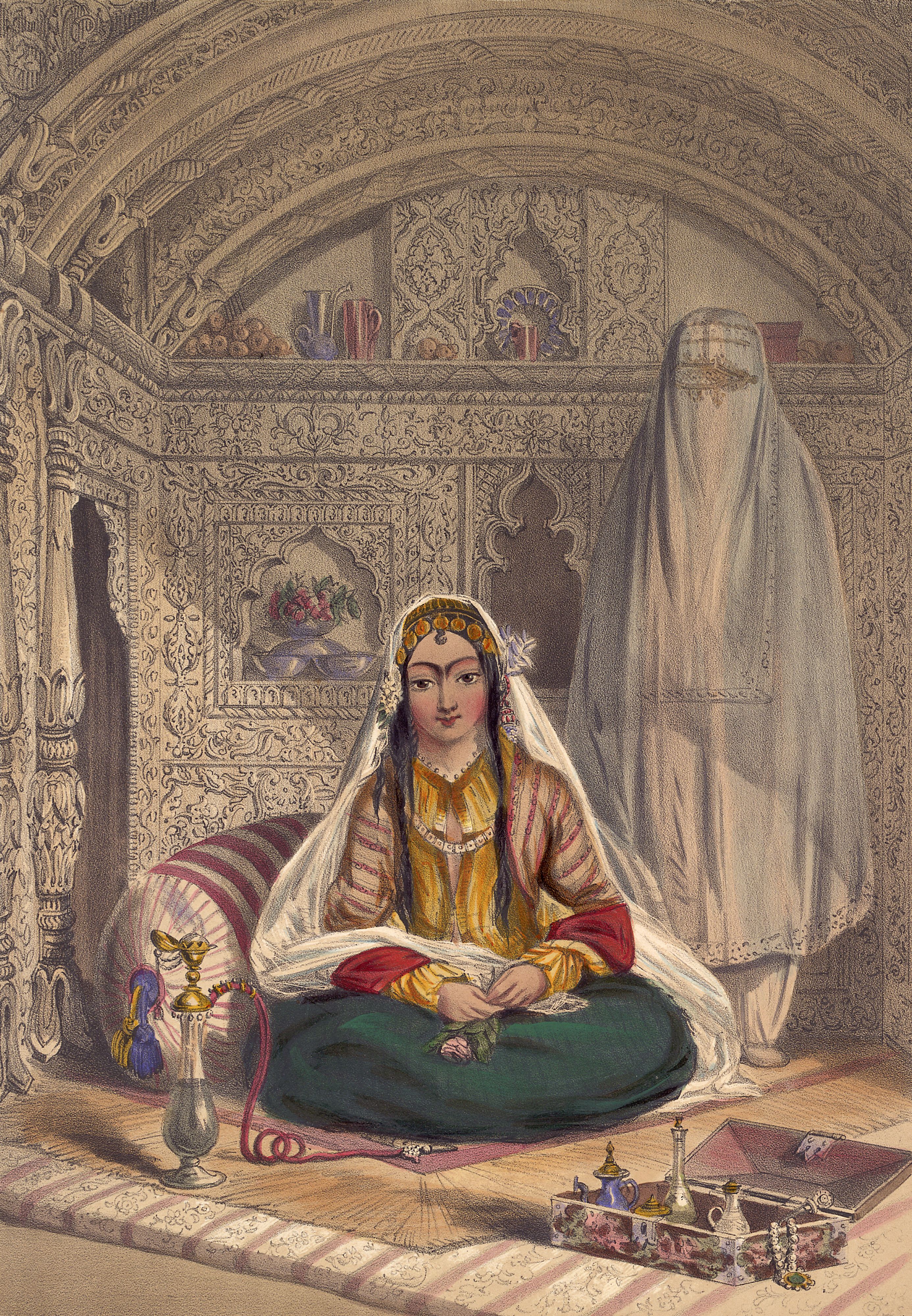|
Hussein Dey (ruler)
Hussein Dey (real name Hüseyin bin Hüseyin; 1765 – 1838; ar, حسين داي) was the last Dey of the Deylik of Algiers. Early life He was born either in İzmir or Urla in the Ottoman Empire. He went to Istanbul and joined the Canoneers (Topchys in Turkish), and quickly rose to the rank of Oda-Bachy, but thanks to his character and rivalries, he was forced to flee the Ottoman Empire. He fled to the Deylik of Algiers, a country which was De facto independent from the Ottoman Empire, similar to the other countries of the Barbary Coast. Algiers was well known for accepting fugitives of different countries. In Algiers, he joined the Odjak of Algiers and became a Janissary. In 1815 he was appointed Khodjet al-khil, a minister tasked with raising and commanding the cavalry of the Dey and raising taxes. He commanded the cavalry as a quick relief force during the bombardment of Algiers in 1816. In 1818 following the death of the previous Dey, the Divan of Algiers elected Huss ... [...More Info...] [...Related Items...] OR: [Wikipedia] [Google] [Baidu] |
Ali Khodja
Ali V Ben Ahmed, nicknamed Ali Khodja, Ali-Meguer, or Ali Loco (the mad) (Arabic: علي ابن أحمد خوجة) was a Kouloughlis, Kouloughli of partial Georgia (country), Georgian (Mingrelians, Mengrelian) and Native Algerian origins born in modern day Algeria. He was the dey of Algiers, dey of the Deylik of Algiers from September 1817, just after the assassination of his predecessor Omar Agha the 8th. He remained so until his death in February 1818. His sobriquet ''Ali-Meguer'' may indicate his Mingrelians, Mingrelian background. Origins He was a Kouloughlis, Kouloughli. His mother was an Algerian Kabyle people, Kabyle, most likely from the Zwawa tribal confederation. He was Mingrelians, Mingrelian from his father's side, although it is unknown if his father was fully, or only partially mingrelian. Early life He was complicit in the assassination of Ahmed bin Ali Khodja in 1808, and the assassination of Omar agha (1817). He served in various important positions before be ... [...More Info...] [...Related Items...] OR: [Wikipedia] [Google] [Baidu] |
Divan Of Algiers
A divan or diwan ( fa, دیوان, ''dīvān''; from Sumerian ''dub'', clay tablet) was a high government ministry in various Islamic states, or its chief official (see ''dewan''). Etymology The word, recorded in English since 1586, meaning "Oriental council of a state", comes from Turkish ''divan'', from Arabic ''diwan''. It is first attested in Middle Persian spelled as ''dpywʾn'' and ''dywʾn'', itself hearkening back, via Old Persian, Elamite and Akkadian, ultimately to Sumerian ''dub'', clay tablet. The word was borrowed into Armenian as well as ''divan''; on linguistic grounds this is placed after the 3rd century, which helps establish the original Middle Persian (and eventually New Persian) form was ''dīvān'', not ''dēvān'', despite later legends that traced the origin of the word to the latter form. The variant pronunciation ''dēvān'' however did exist, and is the form surviving to this day in Tajiki Persian. In Arabic, the term was first used for the army ... [...More Info...] [...Related Items...] OR: [Wikipedia] [Google] [Baidu] |
Naples
Naples (; it, Napoli ; nap, Napule ), from grc, Νεάπολις, Neápolis, lit=new city. is the regional capital of Campania and the third-largest city of Italy, after Rome and Milan, with a population of 909,048 within the city's administrative limits as of 2022. Its province-level municipality is the third-most populous metropolitan city in Italy with a population of 3,115,320 residents, and its metropolitan area stretches beyond the boundaries of the city wall for approximately 20 miles. Founded by Greeks in the first millennium BC, Naples is one of the oldest continuously inhabited urban areas in the world. In the eighth century BC, a colony known as Parthenope ( grc, Παρθενόπη) was established on the Pizzofalcone hill. In the sixth century BC, it was refounded as Neápolis. The city was an important part of Magna Graecia, played a major role in the merging of Greek and Roman society, and was a significant cultural centre under the Romans. Naples served a ... [...More Info...] [...Related Items...] OR: [Wikipedia] [Google] [Baidu] |
Harem
Harem (Persian: حرمسرا ''haramsarā'', ar, حَرِيمٌ ''ḥarīm'', "a sacred inviolable place; harem; female members of the family") refers to domestic spaces that are reserved for the women of the house in a Muslim family. A harem may house a man's wife or wives, their pre-pubescent male children, unmarried daughters, female domestic servants, and other unmarried female relatives. In harems of the past, slave concubines were also housed in the harem. In former times some harems were guarded by eunuchs who were allowed inside. The structure of the harem and the extent of monogamy or polygamy has varied depending on the family's personalities, socio-economic status, and local customs. Similar institutions have been common in other Mediterranean and Middle Eastern civilizations, especially among royal and upper-class families, and the term is sometimes used in other contexts. In traditional Persian residential architecture the women's quarters were known as ''andar ... [...More Info...] [...Related Items...] OR: [Wikipedia] [Google] [Baidu] |


